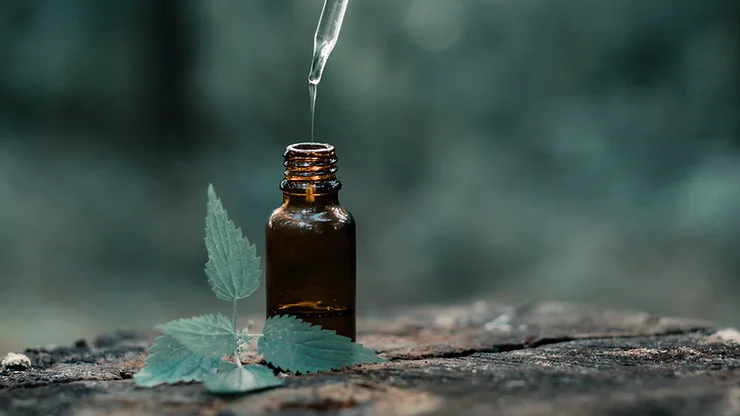The quest for flawless, radiant skin has driven the beauty industry for centuries. While countless skincare products promise miraculous results, nature has already provided us with an array of powerful solutions.
Essential oils, extracted from various plants and herbs, have been used for their therapeutic and beautifying properties for ages.
In this comprehensive guide, we will explore the world of essential oils for face care, uncovering their benefits, usage, and tips for achieving your skin’s best potential.
These days, people have started to explore essential oils for skin care and hair care! Firstly, let us start by understanding essential oils.
Table of Contents:
- Understanding essential oil
- Choosing the Right Essential Oils for Your Skin
- The Benefits of Essential Oils for Your Face
- How to Use Essential Oils for Face Care
- Conclusion
Understanding Essential Oils
-
Essential oils are highly concentrated liquids extracted from plants through various methods, such as steam distillation or cold pressing.
-
They contain the natural essence, fragrance, and therapeutic properties of the plants from which they are derived.
-
When it comes to face care, essential oils offer a wealth of benefits, thanks to their unique compositions.
-
They provide deep nourishment and skin healing.
-
Due to its anti-inflammatory characteristics, lavender, and tea tree oil can lessen the irritation and inflammation brought on by skin disorders like acne, eczema, burns, and bug bites.
-
It reduces wrinkles, which enhances the appearance of the skin.
Choosing the Right Essential Oils for Your Skin
Before we dive into specific essential oils, it’s crucial to understand that different oils cater to various skin types and concerns. Here’s a brief overview of some common essential oils and their suitability for different skin types:
1]. Lavender Oil:
-
Suitable for all skin types, lavender oil has soothing and anti-inflammatory properties.
-
It’s excellent for calming irritated or sensitive skin.
2]. Tea Tree Oil:
-
Ideal for oily and acne-prone skin, tea tree oil has powerful antibacterial properties that can help combat breakouts and inflammation.
3]. Rosehip Oil:
-
This oil is packed with antioxidants and vitamins, making it perfect for ageing or damaged skin.
-
It can improve skin texture and reduce the appearance of scars.
4]. Chamomile Oil:
-
Chamomile is known for its calming and anti-inflammatory properties, making it suitable for sensitive or redness-prone skin.
5]. Jojoba Oil:
-
Jojoba oil is similar in composition to the skin’s natural sebum, making it an excellent choice for all skin types, especially for moisturizing and balancing.
6]. Frankincense Oil:
-
With its rejuvenating properties, frankincense oil is beneficial for mature skin and can help reduce the appearance of fine lines and wrinkles.
7]. Geranium Oil:
-
Geranium oil can help balance oil production, making it suitable for both oily and dry skin types.
8]. Ylang-Ylang Oil:
-
Ylang-ylang oil can help control excess oil production and promote a healthy, balanced complexion.
9]. Neroli Oil:
-
Neroli oil is excellent for dry or sensitive skin, as it can help moisturize and improve skin elasticity.
10]. Patchouli Oil:
-
Patchouli oil is renowned for its skin-regenerating properties and can help with scars and blemishes.
The Benefits of Essential Oils for Your Face
Now that we’ve identified some essential oils and their skin type compatibility, let’s explore the benefits they offer:
1]. Hydration:
-
Many essential oils provide deep hydration, preventing dryness and flakiness.
2]. Anti-Ageing:
-
Essential oils are rich in antioxidants, which combat free radicals and reduce the signs of ageing.
3]. Acne Control:
-
Oils like tea tree and lavender possess antibacterial properties that help control acne and breakouts.
4]. Inflammation Reduction:
-
Essential oils like chamomile and lavender can soothe irritated or inflamed skin.
5]. Scar and Blemish Reduction:
-
Certain oils, like rosehip and patchouli, can fade scars and blemishes over time.
6]. Skin Brightening:
-
Some essential oils, such as lemon and geranium, can brighten the complexion and reduce dullness.
7]. Balancing:
-
Oils like jojoba and ylang-ylang help balance the skin’s natural oil production.
How to Use Essential Oils for Skincare?
While essential oils can work wonders for your skin, they must be used properly. Here are some guidelines for incorporating essential oils into your skincare routine:
1]. Dilution:
-
Essential oils are potent, and direct application to the skin can irritate.
-
Always dilute essential oils with a carrier oil, such as jojoba or coconut oil, before applying them to your face.
-
A common dilution ratio is 1-2 drops of essential oil per teaspoon of carrier oil.
2]. Patch Test:
-
Before applying any new essential oil to your face, perform a patch test on a small area of skin to check for allergies or sensitivity.
3]. Avoid the Eyes:
-
Keep essential oils away from your eyes and mucous membranes. If you accidentally get oil in your eyes, rinse with carrier oil, not water.
4]. Sun Sensitivity:
-
Some citrus essential oils, like lemon and bergamot, can make your skin more sensitive to sunlight.
-
Avoid sun exposure after applying these oils or use them at night.
5]. Consistency:
-
Incorporate essential oils into your skincare routine consistently, but in moderation.
-
Using them too frequently may lead to sensitization or irritation.
6]. Custom Blends:
-
Experiment with creating custom blends of essential oils to address your specific skin concerns.
-
However, always start with small quantities and gradually increase if needed.
7]. Storage:
-
Store essential oils in dark, glass bottles away from direct sunlight and heat to preserve their potency.
Conclusion:
Essential oils are nature’s gift to skincare, offering a holistic approach to achieving healthy, radiant skin.
When used correctly and tailored to your skin type, essential oils can address a wide range of concerns, from hydration and anti-ageing to acne control and scar reduction.
Remember to perform a patch test, dilute essential oils, and be consistent in your routine.
With patience and care, you can harness the power of essential oils for a luminous, beautiful complexion that reflects your inner radiance.
If you liked this guide and want to learn more about natural ingredients, here’s what you need.
- Sandalwood For Skin And Health: The Complete Guide
- Turmeric For Skin, Hair and Health: The Complete Guide
- Rose Water For Skin and Hair: The Complete Guide
- Fenugreek Seeds For Skin, Hair and Health: The Complete Guide
- Onion Juice For Skin, Hair and Health: The Complete Guide
- Aloe Vera For Skin, Hair and Health: The Complete Guide
- Nigella Seeds For Skin, Hair and Health: The Complete Guide
- Rice Flour For Skin, Hair and Health: The Complete Guide
- Rosemary Oil For Skin, Hair and Health: The Complete Guide
- Pumpkin Seeds For Skin, Hair and Health: The Complete Guide
- Neem for Skin and Hair: The Complete Guide
- Sesame Seeds for Skin, Hair and Health: The Complete Guide
- Gram Flour For Skin, Hair and Health: The Complete Guide
- Jojoba Oil Properties and Benefits
- Benefits of Alum – How to Use in Day-to-Day Life
- Benefits of Multani Mitti (Clay Mask) for Your Skin and Hair
- Benefits Of Tea Tree Oil For Hair And Skin
- Benefits Of Mustard Oil And How To Use I
- Rice Flour: Skin, Hair and Health Benefits
- Benefits of Rosemary Essential Oil for Skin, Hair, and Health
- Harness the Power of Curry Leaves for Healthy and Beautiful Hair
- Natural Power of Neem: Skin and Hair Benefits
If you’re not a part of our amazing family, you’re missing out. Join us today and start your natural skincare and haircare journey and get help from other community members. 😊






